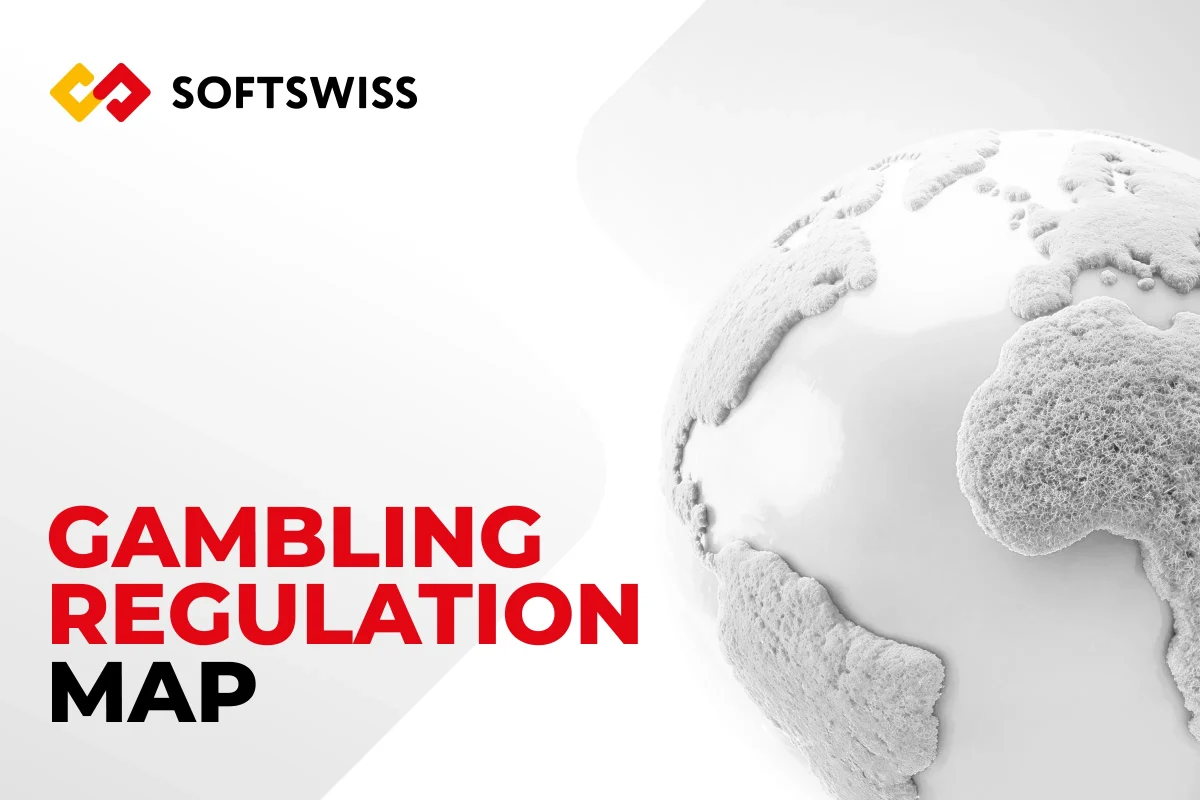

Latest News
GambleAware publishes new report on the lived experience of gambling and gambling harms among Minority communities in Great Britain
GambleAware, the leading charity commissioning gambling harm prevention and treatment services in Great Britain, has published research focusing on the experiences of gambling harms among people from minority communities in Great Britain.
The study by Ipsos UK and ClearView Research, supported by the University of Manchester, has confirmed the role that stigma and discrimination can play not just in driving harms, but also in preventing people accessing help and support.
The report shows that people from Minority communities who have any kind of gambling problem.2 are 50% more likely to have experienced racism or discrimination in public, compared to those who do not have a gambling issue (48% vs. 32%). Some participants in the qualitative research described a link between their experiences of discrimination and racism, and susceptibility to gambling harms. These participants pointed to the role of racism and discrimination in exacerbating gambling behaviour, including feelings of social exclusion, reduced employment opportunities and heightened risk of mental health issues.
The report also shows that people from Minority backgrounds who gambled are three times more likely to say their gambling is a ‘coping mechanism’ to deal with challenges in their life, compared to White British people who gamble (18% vs. 6%).
Participants in the qualitative study also identified many barriers stopping them seeking support for their gambling, some of which were because they were members of a Minority community. People from Minority communities were less likely than people from the White British majority group to say they would feel comfortable talking to friends and family if they were worried about their gambling, and also less likely to say they would feel comfortable talking to a gambling support service provider or a healthcare provider.
There was also a relative lack of awareness in Minority communities of where gambling support was available, and some even had a lack of trust in healthcare providers and support services due to previous experiences of racism and discrimination they had faced when seeking healthcare.
Some participants in the study also said they felt they and others from Minority groups could be disproportionately influenced by gambling marketing and advertising. They noted that having limited understanding about the risks involved in gambling could have made them more susceptible to the gambling marketing and advertising they saw.
Zoë Osmond, CEO of GambleAware, said: “Gambling harms can affect anyone, but they can be more common and more damaging in communities that face social inequality – such as these minority groups. Fortunately, help is out there. The National Gambling Support Network offers confidential, tailored support for people from all backgrounds. It also does a lot of community outreach to raise awareness and increase early intervention, so that people from all backgrounds know where to turn and can get help before gambling problems turn into an addiction.”
Daniel Cameron, Research Director at Ipsos, said: “The findings from this study increase our knowledge of why people from Minority communities may experience gambling harm. The study shows that the unique experiences individuals from Minority communities face in their everyday lives can exacerbate the drivers of gambling behaviour and increase the likelihood of facing gambling harms.”
Wendy Knight, who has lived experience of gambling harm and took part in the study, said: “Looking back, I started gambling compulsively after having issues at work. During that period, I spent a lot of my time and money in casinos as gambling became my way of escaping.
“Also, my parents came to the UK from the West Indies during the Windrush era. Since arrival our lives have been about struggling for money. I think that because of the lack of opportunities in disadvantaged communities gambling seems like one of the few ways we could ever get big money.
“When I started recovery, I found it isolating as there weren’t any other black people there. When I walked into the recovery room it was full of white men, but I stayed because I wanted to recover. Plus, I am used to being the only minority in the room.
“However, much more needs to be done to make people from minority backgrounds feel comfortable to go to recovery services for help.”
Dr Dharmi Kapadia, Senior Lecturer in Sociology at The University of Manchester commented: “This research study has shown that minoritised people facing difficult, and often traumatic, life circumstances such as financial hardship, racism and other forms of social exclusion are at risk of gambling harms. Worryingly, gambling help services are often not seen as trustworthy by minoritised people due to past discriminatory experiences of statutory services. Gambling support services need to work on increasing confidence amongst minoritised groups, including how they organise, advertise and deliver services.”
This latest research builds on a Minority Communities & Gambling Harms: Quantitative Report that GambleAware released in March.
GambleAware will also be opening a new funding programme in December 2023, building on the recommendations from this Minority communities research. A total of £4.3m will available to organisations in England, Scotland and Wales.
Anna Hargrave, GambleAware Chief Commissioning Officer, said: “Our new funding programme is a response to research which demonstrated that both women and people from minority ethnic and religious communities face additional burdens of gambling harm as well as barriers in accessing services which meet their needs. Through the fund we will aim to reduce the inequality of experience of gambling harm for women and people from minority religious and ethnic communities.”
Aviatrix
Aviatrix partners with TQJ and joins the Bet do Milhão portfolio

The popular crash game Aviatrix has entered a strategic partnership with Brazilian operator Todos Querem Jogar (TQJ) to bring the hit title to the recently launched brand Bet do Milhão.
TQJ is a Brazil-licensed operator and an investee company of the Silvio Santos Group, one of the country’s largest media conglomerates. Its first brand, Bet do Milhão, is inspired by Show do Milhão, the iconic Brazilian TV game show, and debuts with a full portfolio of sports betting and online gaming, with a strong focus on innovation, security, and responsible play.
Through the partnership, Bet do Milhão players will now enjoy the full Aviatrix experience, including one of the most dynamic and engaging crash game mechanics in the world.
Anastasia Rimskaya, Chief Account Officer at Aviatrix, said: “This partnership with TQJ and Bet do Milhão is a perfect fit. Aviatrix is about delivering exciting and intuitive gameplay, which aligns perfectly with the Bet do Milhão concept. This is another key milestone in establishing Aviatrix as one of the most popular online casino games in Brazil.”
Leonardo Sampaio, Chief Operating Officer at Todos Querem Jogar, added: “We want to combine the Brazilian way of having fun with the very best in technology and content available in the market. That’s why bringing Aviatrix to our new brand was a priority. We are excited to build a long-term relationship with the team and are confident the game will be hugely successful with our players.”
Aviatrix has been rapidly expanding in Brazil in recent months. In April 2025, the game received full federal certification to operate via licensed operators nationwide, as well as a dedicated certification for the state of Paraná.
The post Aviatrix partners with TQJ and joins the Bet do Milhão portfolio appeared first on Gaming and Gambling Industry in the Americas.
Compliance Updates
SOFTSWISS Releases Gambling Regulation Directory for iGaming Operators

SOFTSWISS, a global tech provider with over 15 years of iGaming expertise, introduces its Gambling Regulation Directory, a new website section designed to help operators navigate the complex landscape of gambling laws worldwide.
The Gambling Regulation Directory provides a structured overview of the legal status of gambling across multiple countries, both land-based and online. With an interactive regulation table and map (coming soon), operators will gain a clear picture of where gambling is permitted, restricted, or prohibited, and evaluate the opportunities, risks, and compliance requirements for entering or expanding into specific markets.
The country profiles also highlight which activities are allowed or prohibited, outline available information on taxation, fees, and licensing terms, and outline key licence details such as duration and permitted activities. In addition, each profile indicates whether SOFTSWISS products are certified or aligned with local regulations, showing operators where SOFTSWISS solutions are ready for use, and underlining our experience and readiness to support them in these markets.
Practical Value for Industry Stakeholders
- Strategic Planning: A trusted reference point for evaluating opportunities and supporting informed decision-making.
- Efficiency: Centralised, up-to-date regulatory information saves time on research.
- Expert Oversight: SOFTSWISS specialists monitor developments to ensure the Directory reflects the latest licensing and legislative changes.
“At SOFTSWISS, we provide a trusted foundation for launching and growing iGaming brands. With the introduction of the Gambling Regulation Directory, we stay true to our goal of offering advanced solutions and empowering operators with the knowledge and insights they need to grow responsibly and sustainably in highly regulated markets. Building on this commitment, our certified software meets the requirements of multiple national regulators, enabling operators to confidently enter new markets with full compliance,” added Olga Resiga, Chief Business Development Officer at SOFTSWISS.
The iGaming Regulation Directory is an evolving resource. Not all country profiles are available yet, but the SOFTSWISS team is committed to updating the Directory regularly with new jurisdictions and the latest regulatory changes.
At SBC Lisbon 2025, Stand B160, visitors will have the opportunity to explore the new Gambling Regulation Directory and exchange views on industry trends with the SOFTSWISS Team.
About SOFTSWISS
SOFTSWISS is an international technology company with over 15 years of experience in developing innovative solutions for the iGaming industry. SOFTSWISS provides comprehensive software for managing iGaming projects. The company’s product portfolio includes the Casino Platform, the Game Aggregator with over 35,000 casino games, Affilka Affiliate Platform, the Sportsbook Platform and the Jackpot Aggregator. The expert team, based in Malta, Poland, and Georgia, counts over 2,000 employees.
The post SOFTSWISS Releases Gambling Regulation Directory for iGaming Operators appeared first on European Gaming Industry News.
Conferences in Europe
BETBY TO PRESENT MAJOR AI LABS ENHANCEMENTS AT SBC SUMMIT LISBON

BETBY, a premium provider of innovative sportsbook solutions, will unveil a major update to its AI-powered sportsbook suite of tools, AI Labs, at the upcoming SBC Summit Lisbon 2025. The upgrade delivers enhancements across Betting Tips, Personalization, and Entertainment Feed, marking another step in BETBY’s mission to transform the sports betting experience through advanced AI.
The first major enhancement is to Betting Tips, BETBY’s tool that provides data-driven insights to help users make more informed decisions. Already covering multiple sports and esports in 25 languages, the feature now scales to 40,000 events per month, the widest coverage in the industry. Most importantly, BETBY is launching live betting tips, an industry-first that reacts to in-game data and updates recommendations in real time. This ensures players receive advice that reflects the actual match conditions, not outdated pre-match assumptions. Moreover, BETBY also shifted focus from traditional markets such as 1×2 to combined markets like “1×2 & Total”, which deliver both higher margins and stronger interaction when complemented with tips.
The second key update is the launch of the enhanced Personalization engine. Designed to tailor the betting journey to each player, the new model introduces real-time personalization that adapts instantly to bets as they are placed. By combining individual preferences with hourly, daily, and weekly trends, the system empowers operators with precise retention tools while giving players more relevant and engaging experiences.
The third enhancement is an evolution of the Entertainment Feed, BETBY’s AI-based feed for non-sporting events such as movies, series, games, TV shows, and breaking news. The feed has expanded beyond generating markets to actively monitor live developments, ensuring odds remain relevant and settlements are automated. Currently used as an alerting system for traders, this update paves the way for fully automated entertainment markets.
Additionally, BETBY’s AI-powered Risk Management system continues to demonstrate market-leading performance, now identifying the top 15% of high-risk players with 99.99% accuracy. This achievement highlights BETBY’s unique combination of speed, precision, and robust analytics in ensuring a secure and profitable operator ecosystem.
“With these upgrades, AI Labs enters an entirely new phase,” said Danil Emelyanov, Head of BETBY’s AI Labs. “We are not only increasing coverage and efficiency but also pioneering features such as live betting tips and automated entertainment markets. These innovations empower operators to engage players in ways no other supplier in the industry can match.”
The upgraded AI Labs features will be officially presented at SBC Summit Lisbon 2025, where BETBY will showcase how its AI-driven approach continues to set new benchmarks for personalization, engagement, and operator success. Attendees are invited to visit BETBY at stand C110 to experience first-hand the supplier’s comprehensive sportsbook solution and its latest innovations.
To find out more about BETBY, visit: https://betby.com/
The post BETBY TO PRESENT MAJOR AI LABS ENHANCEMENTS AT SBC SUMMIT LISBON appeared first on European Gaming Industry News.
-

 gaming3 years ago
gaming3 years agoODIN by 4Players: Immersive, state-of-the-art in-game audio launches into the next generation of gaming
-
EEG iGaming Directory9 years ago
iSoftBet continues to grow with new release Forest Mania
-
News7 years ago
Softbroke collaborates with Asia Live Tech for the expansion of the service line in the igaming market
-
News7 years ago
Super Bowl LIII: NFL Fans Can Bet on the #1 Sportsbook Review Site Betting-Super-Bowl.com, Providing Free Unbiased and Trusted News, Picks and Predictions
-
iGaming Industry8 years ago
Rick Meitzler appointed to the Indian Gaming Magazine Advisory Board for 2018
-
News7 years ago
REVEALED: Top eSports players set to earn $3.2 million in 2019
-
iGaming Industry8 years ago
French Senator raises Loot Boxes to France’s Gambling Regulator
-
News7 years ago
Exclusive Interview with Miklos Handa (Founder of the email marketing solutions, “MailMike.net”), speaker at Vienna International Gaming Expo 2018













